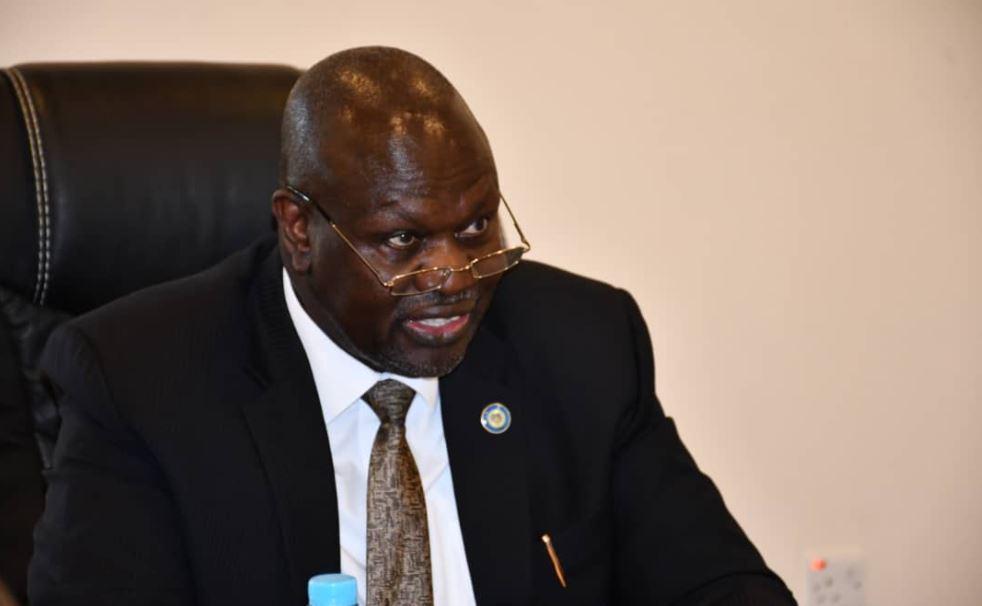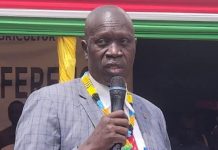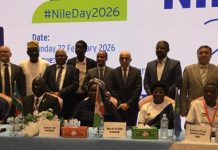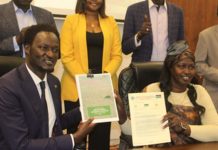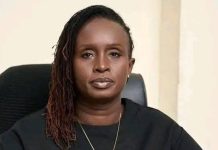Tereza Jeremiah
Africa-Press – South-Sudan. The delegates at the National Economic Conference called it a wrap over the weekend with a raft of recommendations prompting the country’s five clusters to swing into action and actualize the economic goals.
“We resolve to continue a conversation on the economy of South Sudan in an integrated together with the local economies on a regular basis. These conversations will happen at Cabinet and the leadership of each of the 10 states and Local Administrative Areas as well as the constituent counties,” noted the communique by delegates, listing a raft of recommendations.
With the conference done and dusted and eyes shifting to the implementation, the heat and focus now shift to the country’s vice presidents who steer the clusters, and must now live up to their billing in pursuit for economic prosperity.
In the recommendations, three vice presidents emerge as the most burdened with the substantial number of responsibilities now resting on their shoulders.
The First Vice President Dr Riek Machar who is a co-principal in the Revitalised Peace Agreement and the Chairperson of the Governance Cluster played a crucial role moderating the closure of the conference.
According to the draft resolutions, the governance cluster will be expected to ensure institutional stability to avoid high turnover in the key dockets, especially the ministry of finance and planning.
“The NEC participants resolve that there should be greater institutional stability and less turnover among the key members of the county’s national economic team (Ministers of Finance, Governors of BOSS, Undersecretaries of Ministries of Finance and Planning),” the communique partly reads.
The co-principal will also be entrusted with institutional transformation under various resolutions such as reviewing the laws and regulation, enacting intellectual property law, establishing the e-government for efficiency and accountability, enhancing peacebuilding and reconciliation country-wide and investment in telecommunication infrastructure among many others.
The FVP is expected to rein in illegal roadblocks that have been attributed to high market prices that are pricing out consumers.
“[Delegates] demand for the removal of check points country-wide to reduce transaction cost and goods prices.”
To ensure South Sudan’s compliance with East African Community protocols, Machar’s cluster is expected to fast-track the process with the concerned ministries and ensure Juba streamlines ties with the bloc, effect mobility of labour and has functional and effective custom policies.
The implementation of the recommendations made in the conference, the conduct of the 2024 elections and the implementation of the revitalised peace agreement are all domiciled in the governance cluster making Dr Machar a crucial player in achieving the September 2023 recommendations.
Abdelbagi’s duties
The Vice President Hussein Abdelbagi who is in charge of the Service Cluster also shoulders a sizeable chunk of responsibility, with the country’s salient sectors resting on his shoulders.
The delegates observed that South Sudan needs radical surgery in the labour department with the Ministry of Public Service and Human Resource Development being orders to carry out a screening and cleanse the national payroll system.
“The Ministry of Public Service and Human Resource development should develop policies that promote staff capability, skills, attitudes, and behaviour,” read the communique partly.
Apart from this, the delegates resolved that there is a “need for National Revenue Authority to continue the recruitment process that was planned for in the Human Resource Manual and 5 years strategy Plan.” It is also under the service cluster that education sector is expected to have transformations in tertiary levels and introducing vocational training to boost the labour sector. Struggling with the ageing workforce, the minister of labour James Hoth told the conference that there is a need for the civil servants to be sensitized on the importance of retirement to avoid a backlash. This will have to come handy with the plan to increase the salaries of civil servants and organized forces as envisaged in the current budget.
In addition, the service cluster, through the National Revenue Authority will be required to train and recruit an efficient workforce as the country work towards boosting the non-oil revenue stream.
To achieve this, the conference committed to pursue the compliance to the “CAADP Maputo Declaration and Malaba Commitment of Head of States and Government”, which will require the government to commit 10 per cent of the national budget to agriculture.
Dr Igga’s duties
South Sudan is heavily depending on oil to finance its budget and there have been attempts to diversify and drop this overreliance. Thus, the delegates of the NEC tasked the Economic Cluster, under the Vice President Dr James Wani Igga, with using the oil proceeds to spur growth in other sectors.
“Use of the oil revenue to invest in the productive sectors,” read the communique.
Igga who was a focal person alongside the Minister of Finance and Planning, Dr Bak Barnaba Chol, in planning the NEC has a huge chunk of responsibilities that hold key to economic prosperity.
He is expected to unlock the agricultural potential through the removal of taxes on farm inputs and lobbying for more budgetary allocation and improving the human capital through training.
For a country that is rich in livestock keeping, the ministry of livestock fisheries is directed to commercialise the sector.
Igga is expected to spearhead the implementation of the Public Finance Management (PFM) reforms which is a key component of the revitalised peace agreement.
“The NEC participants resolve that an appropriate model for a Treasury Single Account should be operationalized this fiscal year and that all off-budget programs, particularly the Oil for Roads program, should be full integrated and mainstreamed into the budgetary processes of the MOFP,” the NEC recommended.
This will come along the fight against corruption and pursuing a data-based economy through the empowerment of the South Sudan National Bureau of Statistics.
The cluster has been tasked with increasing the tax bracket to scale down borrowing as well as job creation.
Some of the recommendations on the on economic stability include exchange rate stabilization through accumulation of reserves, encouraging citizens to save in banks and adopting electronic banking system; Considering changing current South Sudan currency to rid of old bank notes and transferring to Bank of South Sudan accounts.
For a country that battles the impacts of inflation, Dr Igga is charged with conducting research into the dynamics and availing them for action. He is also to “conduct awareness on the importance of savings at the bank to the people of South Sudan.”
The VP is expected to deal with the debt management that threatens to spiral to worrying levels and spearhead the reforms at NilePet.
Igga’s responsibilities do not end at that. His cluster is expected to champion the rebirth of the country’s tourism sector that country shows glimpses of potential.
“Classify all the existing hotels and restaurants in the country and determined the different types of services and categories of hospitalities and their standards system,” NEC directed in the recommendations.
For More News And Analysis About South-Sudan Follow Africa-Press

